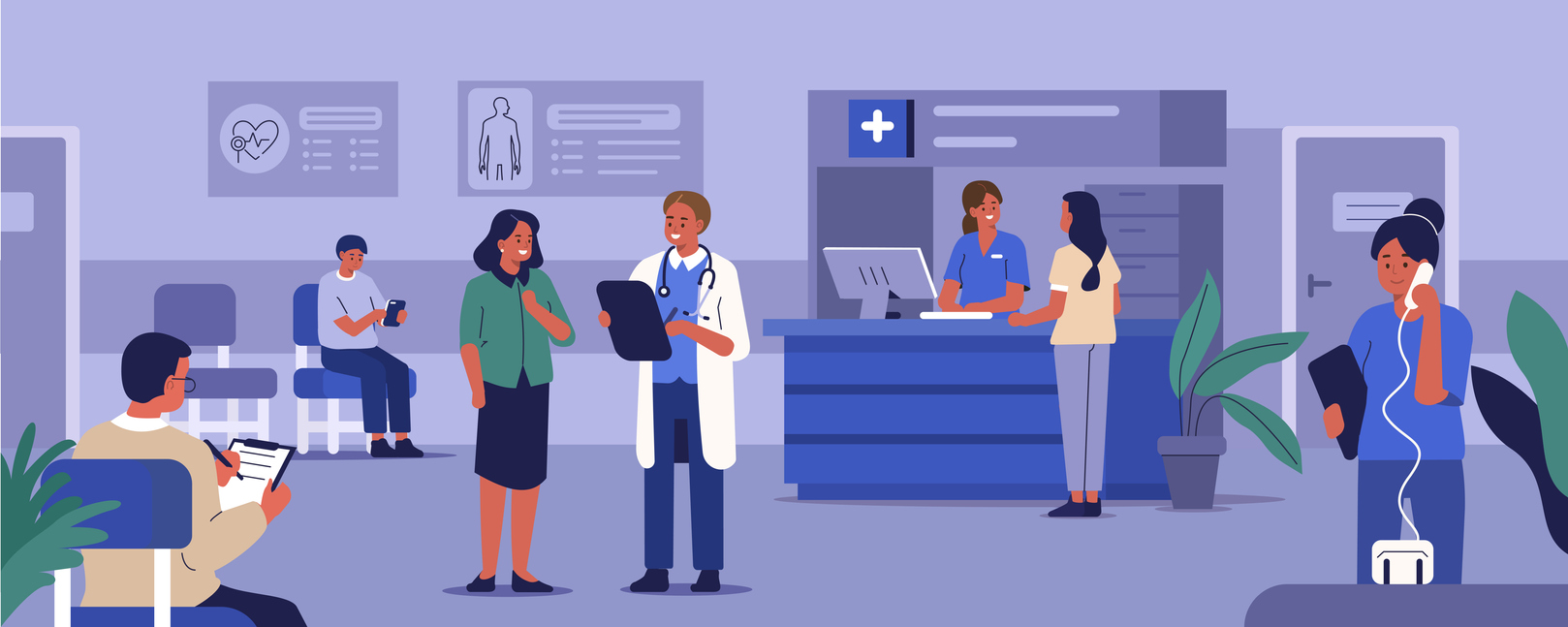Many people today avoid visiting the doctor unless they absolutely need to. The extent of many Americans’ interactions with health care includes urgent care clinics, one-off visits or, more recently, urgent care apps. These resources are valuable when you’re sick, but they can’t replace the importance of having an ongoing physician who regularly monitors your health.
Over the past several decades, the health care system has become increasingly impersonal and difficult from the patient’s perspective. A significant portion of people don’t even have a primary care doctor. According to a Harris Interactive Polls study cited in the New England Journal of Medicine, in 1966 more than 75% of Americans reported feeling high levels of confidence in medical workers. By 2012, only 34% felt that way. Gallup reported that in 2019, only 15% of Americans said they felt a “great deal” of confidence in the U.S. medical system. This lack of confidence in the health care system is even higher among people of color and other marginalized communities.
When you want to optimize your health, ask questions about your care, or check in regularly with a doctor, it’s important that you have a trusted doctor to whom you can turn. To be able to effectively receive that level of care, you need to be able to trust the person giving it to you.
Health Care: The Trust Factor
Compared with people living in other developed countries, Americans are outliers in their lack of trust towards doctors and the national health care system. When asked about disease outbreaks, less than one-third of Americans reported (in 2018) that they trusted public health officials to be transparent and informative with the public. According to a 2014 Gallup poll, less than one-quarter of people expressed confidence in the U.S. health care system.
The amount of trust a patient feels with his or her doctor impacts the quality of care and clinical outcomes. In the U.S. today, Americans struggle to trust their doctors for a multitude of reasons. Prominently among them are problems with lack of representation, discrimination and bias, and barriers to quality care.
Reasons Why Many Americans Haven’t Found a Doctor They Trust:
Lack of Representation Among Doctors
Black Americans make up 13% of the U.S. population, but only 5% of U.S. doctors. Research has found that people of color are more than four times as likely to receive care from physicians of color. Low-income, Medicaid, and uninsured patients are also more likely to go to a doctor of color.
Studies have shown that black patients, for example, are more likely to seek out black doctors for treatment. They’re also more likely to report higher levels of satisfaction with their care when treated by a black doctor. These tendencies also carry over to patient-psychologist relationships in mental health treatments.
Discrimination & Bias
A survey conducted by Lambda Legal evaluated the barriers to health care among LGBT and HIV communities at the national scale. It found that among these communities, more than half of people experienced some form of discrimination in their health care.
For some, health care workers refused to touch them, used excessive precautions, used derogatory language, blamed the patients for their health status, or were physically rough or abusive. Nearly 56% of lesbian, gay or bisexual respondents and 70% of transgender and gender-nonconforming respondents reported having at least one of these negative experiences.
Lack of Equitable Access to Care
Polls have found that the biggest issue Americans have with the U.S. health care system is high cost. Nearly two-thirds of Americans believe financial barriers to care constitute a very serious problem for the country, one that makes Americans more vulnerable in public health emergencies.
Low-income families report being significantly less trusting of physicians and less satisfied with their medical care than non low-income families. Other obstacles for low-income patients include higher likelihood of living in an area with less access to quality health resources, limited availability of quality nutrition and recreational facilities, and increased chances of developing chronic illness.
***
Trusting Your Doctor is Crucial to the Overall Quality of Your Health and Care
Health is one of the most personal and intimate parts of life for everyone. You should be able to trust the doctor with whom you discuss your medical conditions, talk about your health concerns, and undergo physical evaluations.
“If the U.S. medical profession wants to influence health policy decisions, it must improve public trust.”
To reverse the detriments caused by the issues discussed above, confidence in the health care system would benefit from increased diversity in the health care field, thoughtful education and training for health care workers aimed at reducing discrimination in treatments and patient interactions, and increased access to care for people of lower socioeconomic status.
*****
SteadyMD matches you with a personal online doctor based on what’s important to you as an individual. Based on your responses to our quiz, we partner you with a health care professional who aligns with your lifestyle, medical needs, and goals. You don’t need insurance to sign up. To get started or learn more, go to smdmitopop.wpengine.com.
